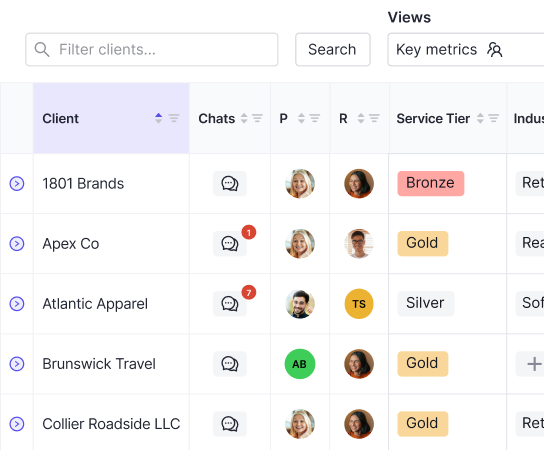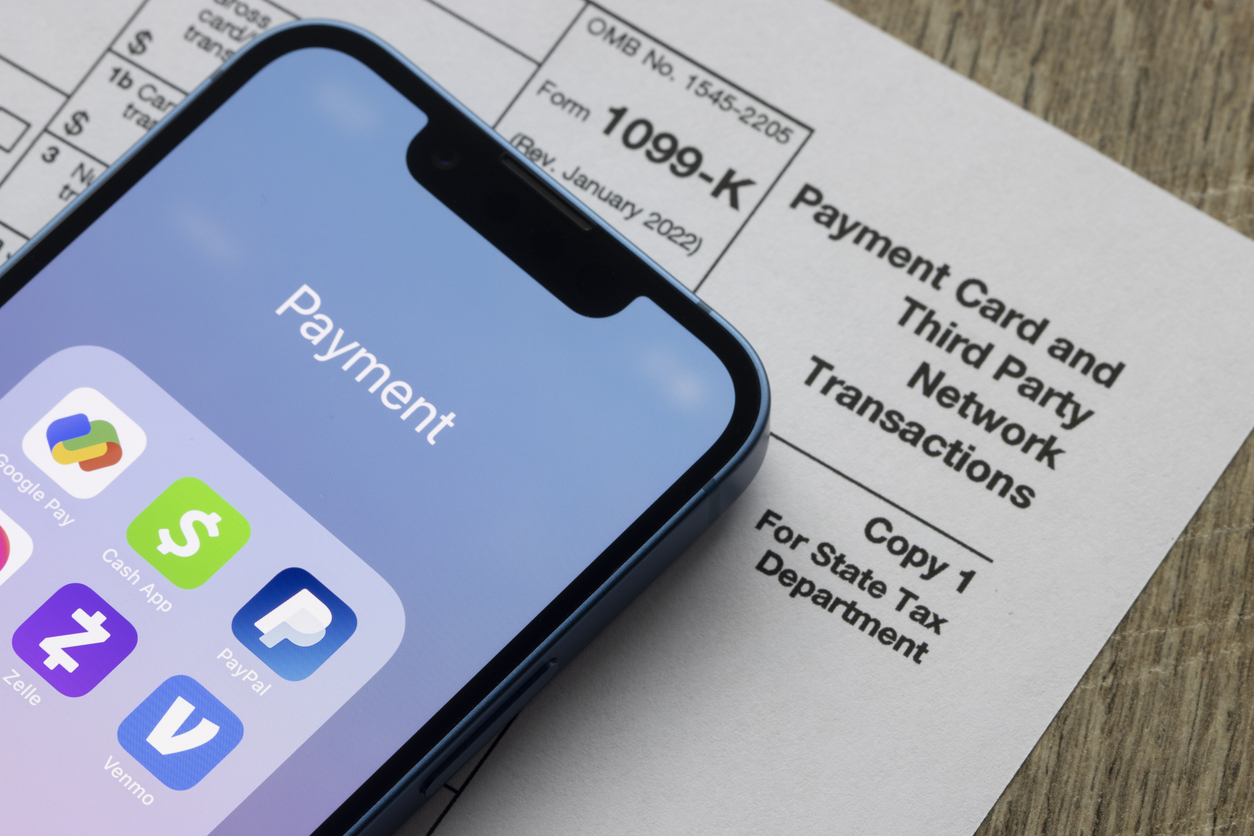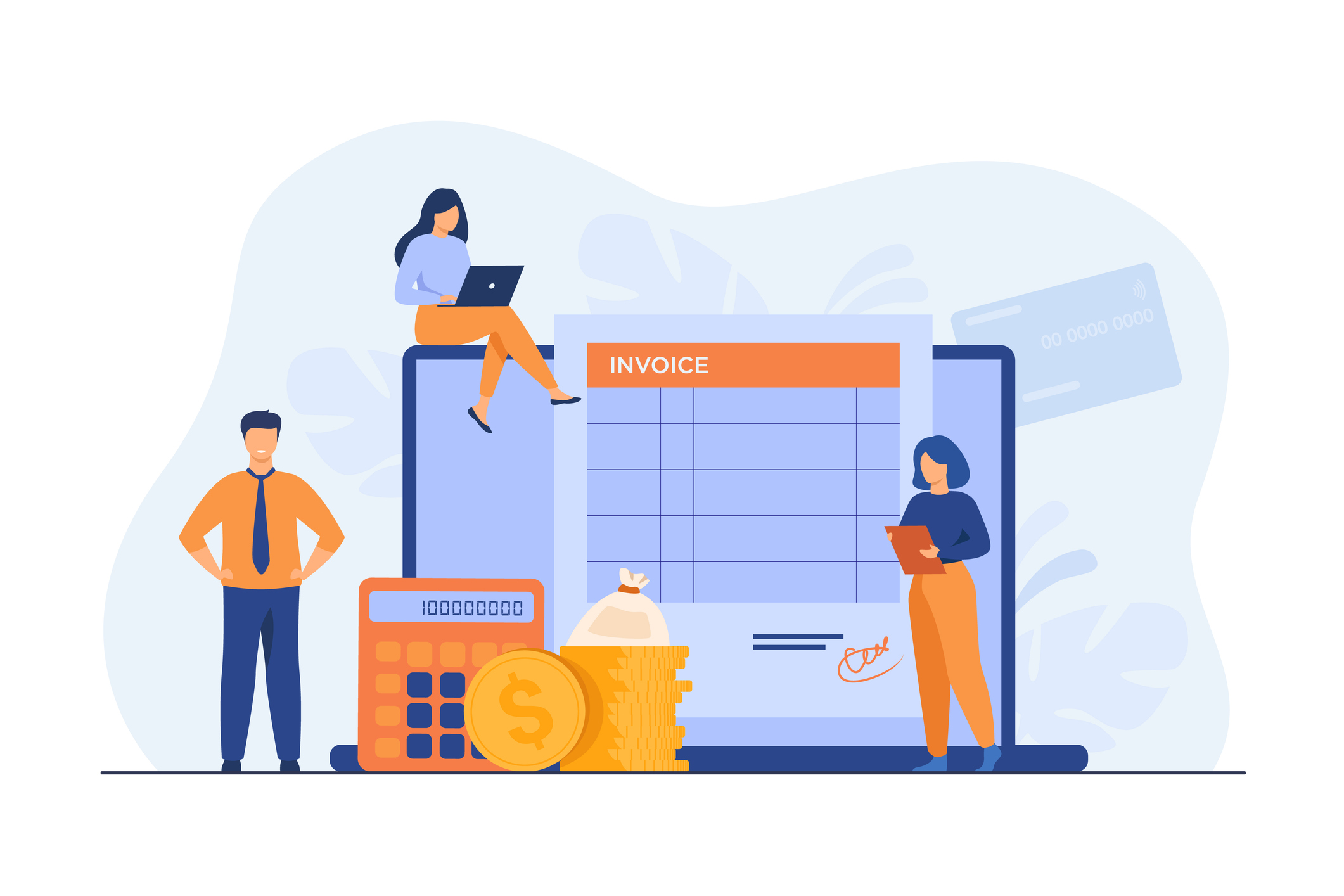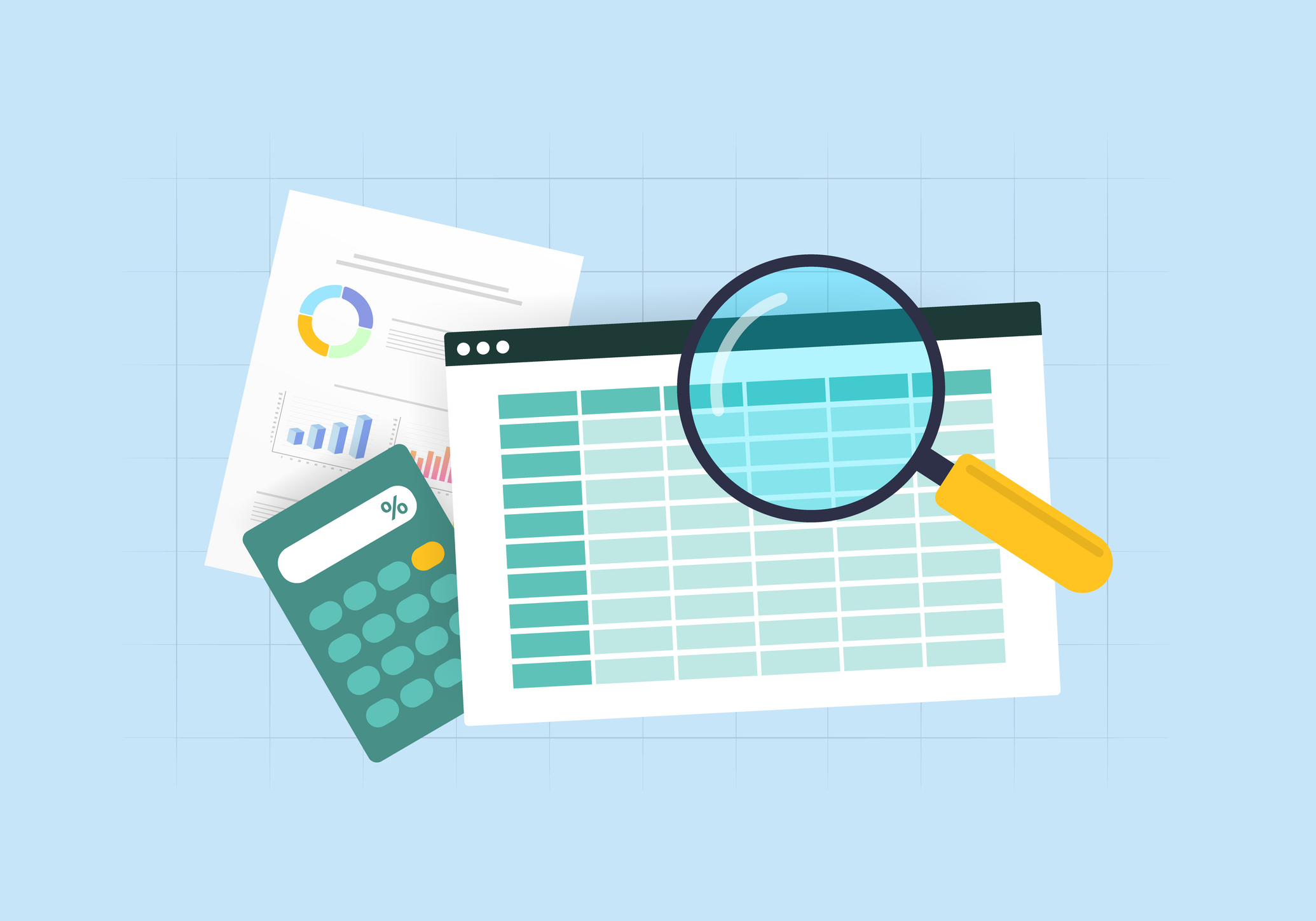Bookkeeping courses and certificates. Are they really necessary?
The thing is, if you want to stand out as a professional bookkeeper, then your credentials need to be in tip-top shape. And, a certification can help with that.
Here’s the lowdown on the subject, including the best bookkeeping certificate programs worth pursuing.
Do You Need a Bookkeeping Certificate?
The quick answer is “no.” You don’t actually need a bookkeeping certificate to be successful. And, you’re
not legally required to have one, either.
That’s not to say that becoming a certified bookkeeper isn’t worth it, though.
Having a bookkeeping certification will definitely boost your prospects and give you a competitive edge. Especially if you’re just starting out and want a way to jumpstart your career.
If you’re applying for a job and you’re up against bookkeepers with similar experience, employers will likely pick the one who has the best credentials. So, if you have a certification, it’s going to help you stand out.
This is especially true if you want to
work within certain industry niches.
For instance, the healthcare industry has complex billing systems and compliance regulations. Having a certification shows you know how to handle sensitive data properly.
In all, we recommend looking at the industries you want to work in and researching how valuable a certificate will be in helping you land your perfect bookkeeping job.
Even an experienced bookkeeper who has racked up a few years in the industry can benefit from a bookkeeping certification (though it matters less if they don’t have one).
Common Bookkeeping Certifications
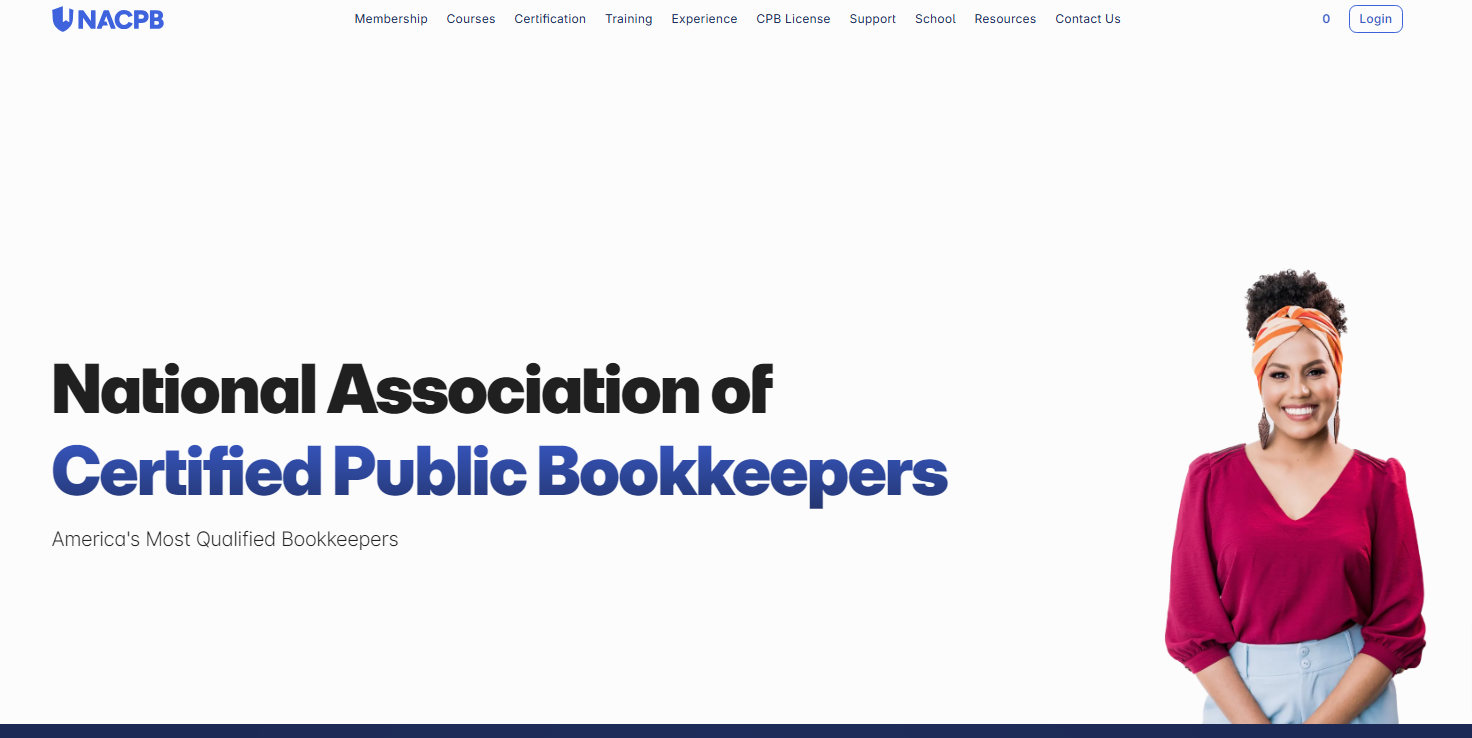
Two professional bodies provide what are considered the best online bookkeeping certificate programs.
First is the
National Association of Certified Public Bookkeepers (NACPB).
This bookkeeping certificate program (each with a certification exam) is split into five parts:
- Accounting Fundamentals
- Bookkeeping Certification
- QuickBooks Online Fundamentals
- Payroll Fundamentals
Once you have completed the above courses and have at least a year’s worth of bookkeeping experience, you can then go for the
Certified Public Bookkeeper License – The leading license in the US.
The total cost is $1,400 with a 28% discount given to NACPB members.
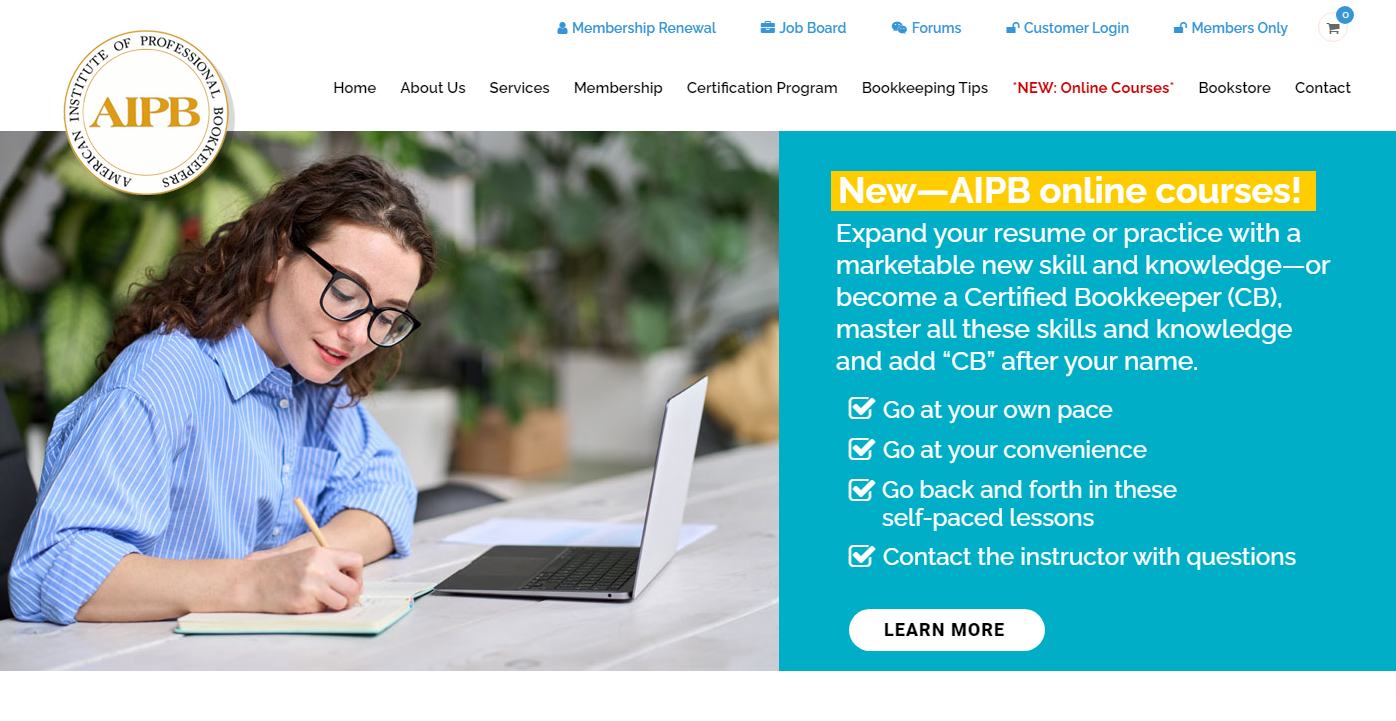
Second is the
Certified Bookkeeper Designation from the
American Institute of Professional Bookkeepers (AIPB).
However, this certification program is for those who already have plenty of bookkeeping experience – it is not for beginners.
To become an AIPB-certified bookkeeper, one needs to have been working as one for at least two years or amassed 3,000 hours working part-time or as a freelancer.
The 99-hour self-study course costs $1,495 for all the materials.
Other affordable options include:
- The Intuit Academy Bookkeeping Professional Certificate gives you bookkeeping basics. This online bookkeeping course costs $39/month and takes about four months to complete.
- For basic and advanced knowledge, the US Career Institute Bookkeeping Certification takes four months. It costs $589 and you get access to a career coach advisor.
Bookkeeping Certification Pros
Demonstrates You Have the Right Skills
Skilled bookkeeping clerks will always be in higher demand.
Newbie bookkeepers who don’t have years of experience can use a bookkeeping certification to prove they’ve
put the effort in and taken the time to learn bookkeeping skills and accounting concepts.
If you’re experienced, then a bookkeeping certification serves as a way to enhance your credibility and willingness to stay on top of industry changes.
Essentially, if you can hit the ground running in a new role, then that’s going to work massively in your favor. Employers would prefer not to spend time and money training you and getting you up to speed.
Stand Out in a Crowded Market
It’s estimated that there are over
1.7 million bookkeepers in the US. So, you have a lot of competition!
You need to prove your value and your commitment to the role, and gaining a bookkeeping certification will help you do this.
Additionally, you can use the certification to expand your capabilities, such as offering payroll, tax preparation services, or fraud prevention.
Even an accounting administrative assistant or auditing clerk can increase their employability prospects with a bookkeeping certification.
In short, getting certified will help you stand out above the rest and catch the eye of potential employers.
Higher Earning Potential
According to Indeed, the
average bookkeeper rate is $22.60. However, with experience, this can go as high as $31.65.
Payscale states that the average salary for a certified bookkeeper is $59,000/year which is a jump from the median rate of $52,652 as stated by
salary.com.
While your bookkeeping career may start at the lower end of the pay scale, you can quickly raise it with a bookkeeping certification.
Holding a bookkeeping certificate gives you
more leverage when negotiating your rate because it demonstrates you have advanced knowledge on the subject.
Bookkeeping Certification Cons
Upfront Cost and Time
Let’s be real here. Getting a professional certification isn’t a quick win.
You need to be prepared to
put in the time and effort, which can be challenging to fit around a busy life.
For example, the NACPB Accounting Fundamentals certification will take you 13 weeks – and that’s just one of its five certifications. Then there’s the continuing education aspect of it, which takes up even more time.
The cost can create a barrier, too. NACPB and AIPB are well over $1,000 each.
True, it’s not as expensive as enrolling in your local university, but if you’re earning an entry-level bookkeeping salary, this may not be an immediately affordable option.
It’s Not Always Necessary or Recognized
As noted, many industries don’t require you to have a bookkeeping certification and prefer you to demonstrate a
strong portfolio and practical experience.
Before you go down the bookkeeping certification route, perform plenty of research to determine whether it’s really going to be worth your time and money.
Check out the various bookkeeper job openings to see if they insist on a certificate or if they emphasize other skills or industry experience instead.
Often, familiarity with specific software (such as QuickBooks) is prioritized over a certification, so this may be where you need to concentrate your efforts.
Ongoing Maintenance and Renewal
Gaining a NACPB or AIPB bookkeeping certification is not a one-and-done thing.
You have to
continuously maintain your certification and ensure your professional development remains up-to-date with industry changes.
- The NACPB bookkeeping license must be renewed annually. Renewal requires at least 24 continuing professional education (CPE) credits and a fee of $25.
- AIPB requires renewal every three years. You need to provide 60 CPE credits and pay a $3 fee to register each of them ($180 total).
This doesn’t sound like a lot, but it can feel like a burden when you’re balancing work and personal commitments.
Bookkeeper Skills Needed
If you decide that a bookkeeping certification is not the right path for you, what bookkeeping skills are you going to need to highlight on your resume?
Besides possessing a basic knowledge of accounting principles and tax regulations, you’ll need to know how to perform:
- Accounting concepts (double-entry bookkeeping, general ledger management, financial statement preparation, etc.)
- Accounts payable and receivable
- Bank, credit card, and financial transaction reconciliation
- Vendor tracking and 1099 management
- Financial report creation
- Accurate data entry with close attention to detail
- Payroll accounting and management
You’re going to need several soft skills, too. Employers will want to see that you can:
- Communicate effectively with clients, colleagues, and vendors
- Organize financial records and workloads efficiently
- Successfully troubleshoot and resolve issues
- Display excellent time management skills
You also need to be
adaptable and a problem-solver. When challenges arise, organizations want someone who actively looks for solutions, not a person who dwells on the issue.
But above all, employers need to know that they can trust you with their sensitive financial data. Therefore, your ability to maintain confidentiality and integrity at all times is key.
Common Bookkeeping Tools
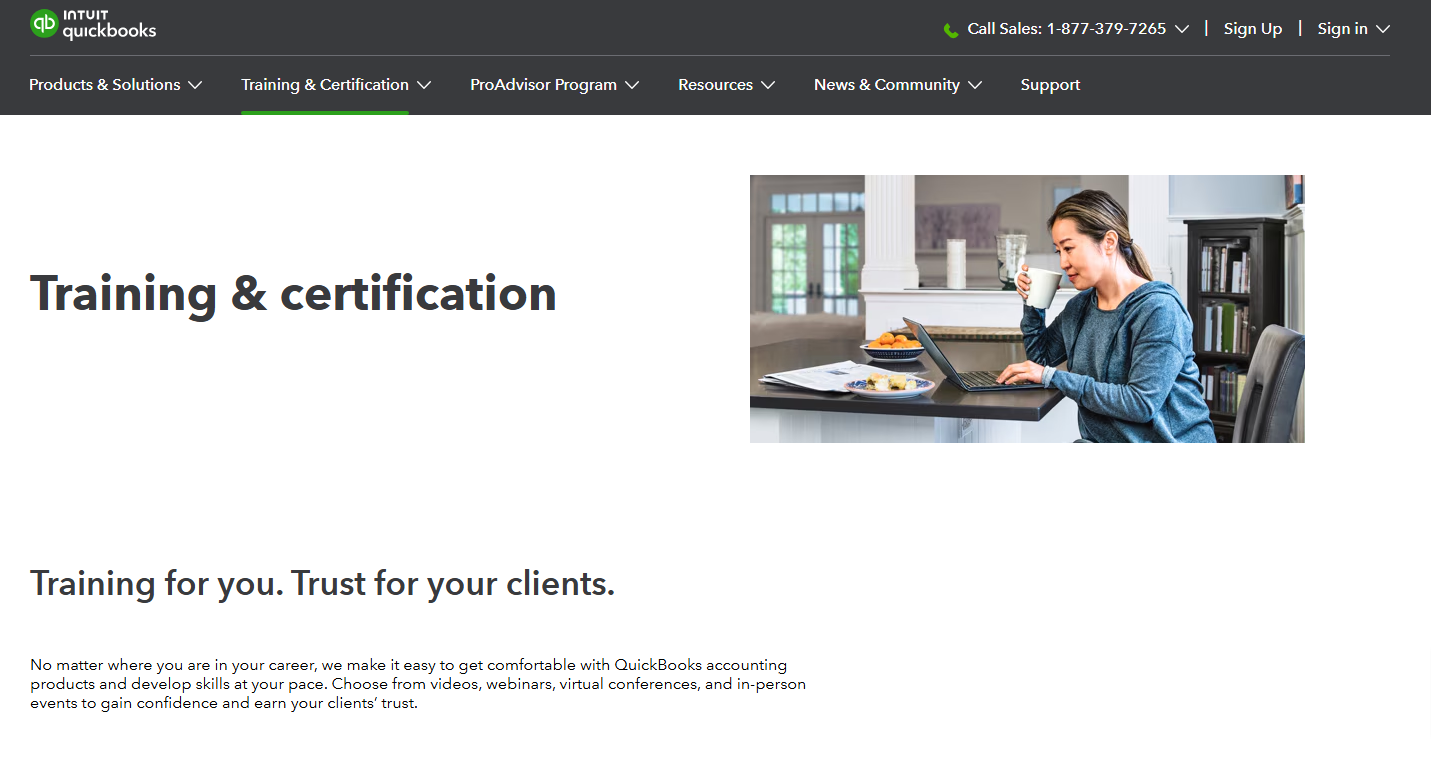
A huge bookkeeping skill to learn is how to navigate the various accounting platforms.
Believe us, there are a lot of them out there, but fortunately, some are more popular than others.
We recommend learning:
- QuickBooks Online: This should be the first place you start since it’s the most used financial accounting platform out there. It’s worth getting certified to use the software – courses are free if you sign up for the QuickBooks ProAdvisor Program.
- Xero: Another widely-used bookkeeping and accounting platform. It also offers free certifications for its software.
- Other platforms include FreshBooks, Wave, ZohoBooks, and Sage 50cloud.
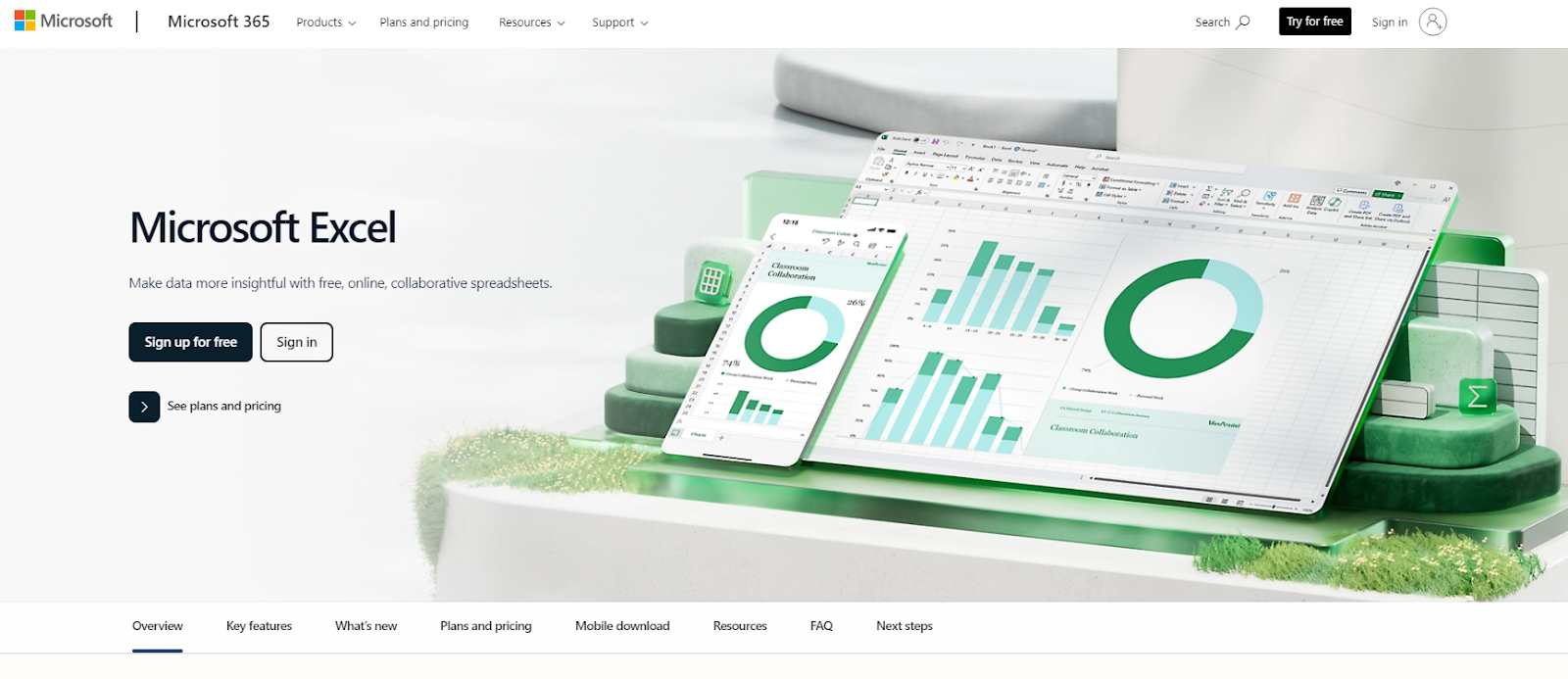
Let’s not forget good old Microsoft Excel, either. This tool is commonly used alongside accounting platforms for advanced data manipulation and analysis.
Believe it or not, some organizations still solely rely on Excel for bookkeeping.
You should also learn how to use
bookkeeping practice management software. Platforms like Keeper will enable you to better manage client communication and
streamline your workflows (making you super efficient!).
Other tools you are likely to find yourself using include:
- Project management platforms like Trello and Asana
- Communication software such as Slack or Zoom
- You may also rely on customer relationship management (CRM) platforms like HubSpot or Zoho CRM
Get Keeper to Help Run Your Bookkeeping Business
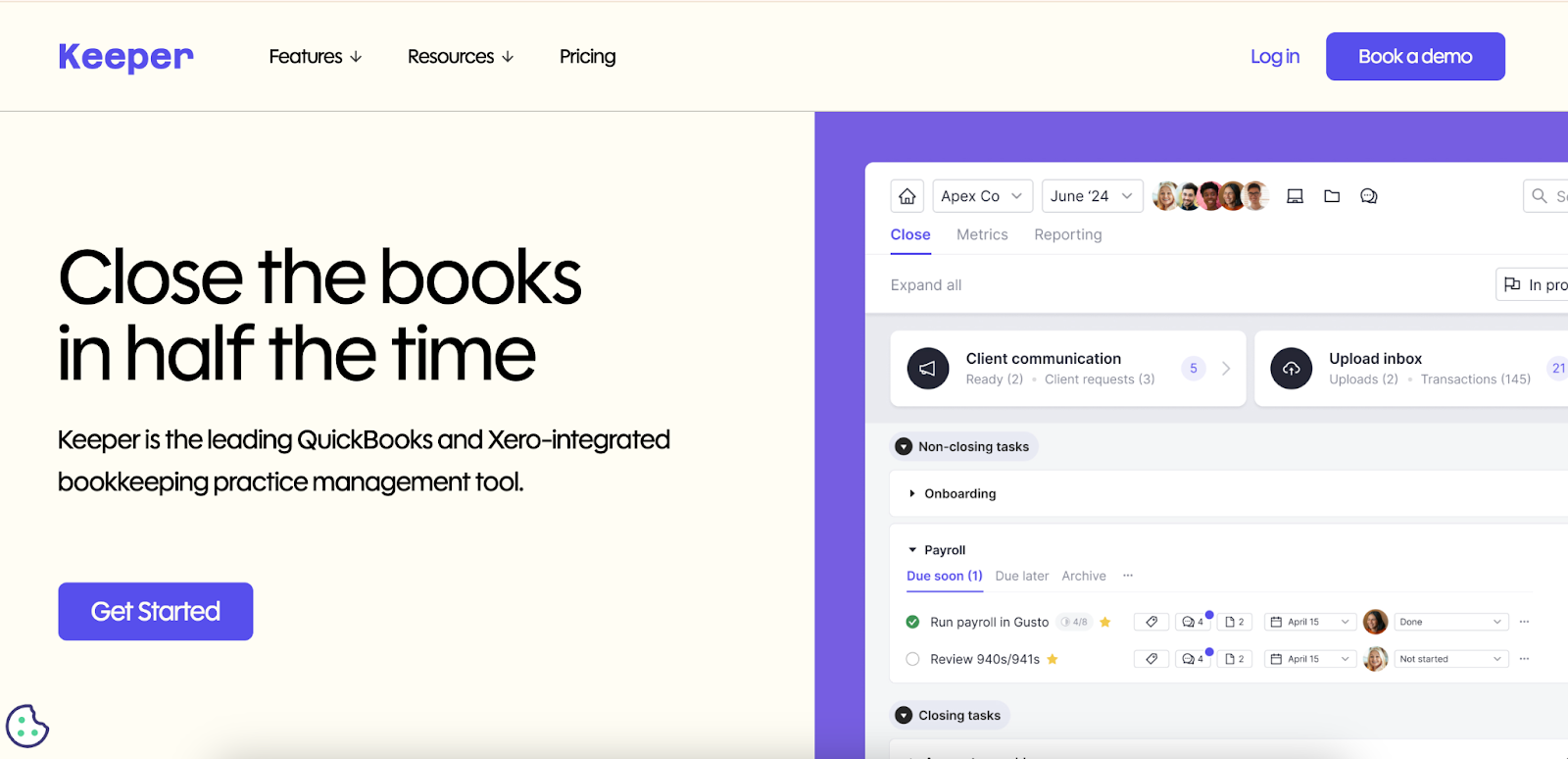
If you’re just getting started, a
successful bookkeeper launch begins with the right tools.
This is where Keeper, the
bookkeeping software for bookkeeping business owners, steps in.
Keeper’s features are designed to help you close the books in half the time. How? Find out by booking a
free demo.
 Two professional bodies provide what are considered the best online bookkeeping certificate programs.
First is the National Association of Certified Public Bookkeepers (NACPB).
This bookkeeping certificate program (each with a certification exam) is split into five parts:
Two professional bodies provide what are considered the best online bookkeeping certificate programs.
First is the National Association of Certified Public Bookkeepers (NACPB).
This bookkeeping certificate program (each with a certification exam) is split into five parts:
 Second is the Certified Bookkeeper Designation from the American Institute of Professional Bookkeepers (AIPB).
However, this certification program is for those who already have plenty of bookkeeping experience – it is not for beginners.
To become an AIPB-certified bookkeeper, one needs to have been working as one for at least two years or amassed 3,000 hours working part-time or as a freelancer.
The 99-hour self-study course costs $1,495 for all the materials.
Other affordable options include:
Second is the Certified Bookkeeper Designation from the American Institute of Professional Bookkeepers (AIPB).
However, this certification program is for those who already have plenty of bookkeeping experience – it is not for beginners.
To become an AIPB-certified bookkeeper, one needs to have been working as one for at least two years or amassed 3,000 hours working part-time or as a freelancer.
The 99-hour self-study course costs $1,495 for all the materials.
Other affordable options include:
 A huge bookkeeping skill to learn is how to navigate the various accounting platforms.
Believe us, there are a lot of them out there, but fortunately, some are more popular than others.
We recommend learning:
A huge bookkeeping skill to learn is how to navigate the various accounting platforms.
Believe us, there are a lot of them out there, but fortunately, some are more popular than others.
We recommend learning:
 Let’s not forget good old Microsoft Excel, either. This tool is commonly used alongside accounting platforms for advanced data manipulation and analysis.
Believe it or not, some organizations still solely rely on Excel for bookkeeping.
You should also learn how to use bookkeeping practice management software. Platforms like Keeper will enable you to better manage client communication and streamline your workflows (making you super efficient!).
Other tools you are likely to find yourself using include:
Let’s not forget good old Microsoft Excel, either. This tool is commonly used alongside accounting platforms for advanced data manipulation and analysis.
Believe it or not, some organizations still solely rely on Excel for bookkeeping.
You should also learn how to use bookkeeping practice management software. Platforms like Keeper will enable you to better manage client communication and streamline your workflows (making you super efficient!).
Other tools you are likely to find yourself using include:
 If you’re just getting started, a successful bookkeeper launch begins with the right tools.
This is where Keeper, the bookkeeping software for bookkeeping business owners, steps in.
Keeper’s features are designed to help you close the books in half the time. How? Find out by booking a free demo.
If you’re just getting started, a successful bookkeeper launch begins with the right tools.
This is where Keeper, the bookkeeping software for bookkeeping business owners, steps in.
Keeper’s features are designed to help you close the books in half the time. How? Find out by booking a free demo. 



